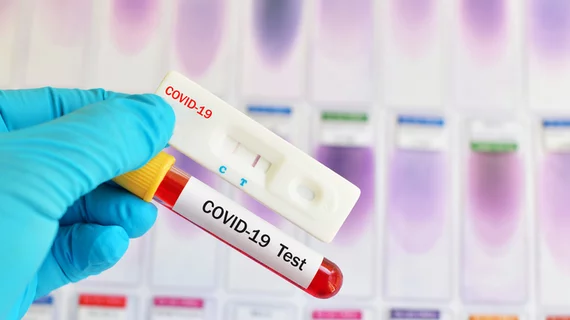Cardiologist-led COVID-19 study to focus on protecting healthcare workers
The Duke Clinical Research Institute (DCRI) has launched a new study aimed at evaluating how COVID-19 is impacting the health of physicians throughout the United States. Researchers will also assess the potential ability of hydroxychloroquine to limit infections among high-risk healthcare providers.
The DCRI, part of the Duke University School of Medicine, has gained funding of up to $50 million for this study, which has been named the Healthcare Worker Exposure Response and Outcomes (HERO) research program. Adrian Hernandez, MD, a Duke cardiologist, helped develop the program and will act as its administrative principal investigator.
“Healthcare workers on the front lines are critical to the pandemic response,” Hernandez said in a statement. “To address their needs, we need to do rapid-cycle research and clinical trials. Although there has been discussion about hydroxychloroquine as a potential prevention for COVID-19, we are lacking the data on safety and efficacy of this therapy. By conducting this study with healthcare workers, we are working directly with those who understand the importance of quickly getting answers into the hands of those on the front line.”
The HERO program is being separated into two parts: a national registry for identifying and enrolling high-risk health workers and an investigation into the effectiveness of hydroxychloroquine.
Susanna Naggie, MD, an associate professor of medicine at Duke, will lead hydroxychloroquine study.
“It's important that we assess the effectiveness of this drug for prophylaxis treatment in healthcare workers, both for their safety and to prevent further spread of SARS-CoV-2 as they care for patients,” Naggie said. “Furthermore, the HERO registry of healthcare workers will ease study start-up times for future clinical trials that may be carried out for other prevention or treatment strategies.”

